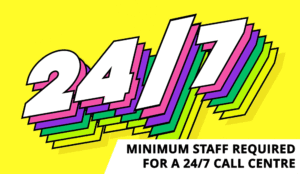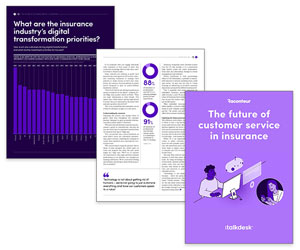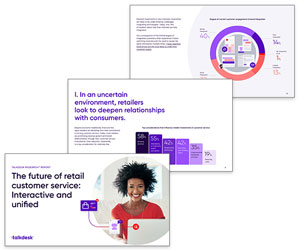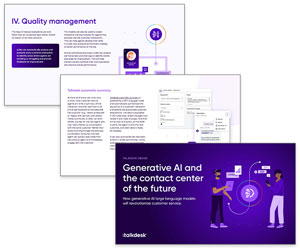We love to share the discussions held in our contact centre community, so when the interesting topic of what time is best to call customer service came up, this seemed like a great one to put together for you.
The following question was asked by a member of the community and the responses were great:
When is the Best Time to Call Customer Service?
What I’m after is finding out what time of day is best to call to have the best chance of getting straight through, i.e. would 2pm on Monday afternoon be best as most call centre staff at their desk, and if people are at work lines may not be as busy etc?
And does this vary according to where the call centre is based i.e. if it’s abroad so you’re calling a UK company but the call centre’s in South Africa or India?
We’re after fairly generic advice as I realise this could vary according to which company you’re calling etc.
Question asked by journalist
Often Call Customer Service Off Peak
There is no hard and fast rule, but the best times are often off peak.
Just after the call centre opens is usually good. 10-12am is normally very busy, as is 2-3pm.
I often find 4-5pm to be good. Weekend and evenings can often be surprisingly be quite good times to get in touch. After 9pm can work well for a 24 hour call centre.
With some call centres (e.g. BT fault reporting) you may find that filling in an online form can work better than calling. You may also find a letter is a good deal.
You may also get a few hints on getting through to a company through Twitter. If you go to search.twitter.com and type in e.g. “O2 customer service” you will often find out how well O2 are performing.
Some call centres though are always overloaded. I have heard that wait times of 45 minutes are possible with one broadband service provider, so may not be a good time for some companies.
The local Citizen’s Advice Bureau here advise to call as soon as the call centre opens. This is typically 8:00am or 09:00am. You can find the details on their website.
I used this to good effect when I needed to reach a travel company. they had call waits of over 1 hour to get through. Itried a number of times over the week. I called within one minute of the centre opening. I still had to queue but got answered within 20 minutes.
The Best Times to Call Customer Service
I have put together a quick summary of the best times to call customer service, which also highlights good times, as well as the bad:
| Best Times to Call Customer Service | |
|---|---|
| Best | As soon as it opens e.g. 8 AM / 9 AM |
| Good | After 7 PM |
| Bad | 10 – 12 AM / 2 – 3PM |
With thanks to Jonty
Call Customer Service As Soon as the Lines Are Open
Simply put, the best time to call is when other customers or prospective customers are unlikely to be able to or want to call.
As soon as the lines are open if this is early e.g. 8am. It also depends on what business you are calling. If the business is likely to be dealing with customers who are busy professionals then 10 – 12 and 2- 6 could be good times.
For other businesses dealing with a broader socio demographic customer base, these are likely to be busy times. Evenings after 7pm, if the line is open can be a good time because who wants to make that call when they get in from work unless they really have to.
Weekends can also be good times. Some business with an eye to service will actually tell you when the less busy times are as part of their wait message.
For one contact centre operation that I managed, I used to include details of the best time to call the line in the fulfilment letters we sent out after a sale was made. Hope this helps.
With thanks to Janette a regular contributor
Remember Call Volume Spikes Around the Hour Mark
“It is human nature to look at the clock and ring after it strikes the hour.” Furthermore, this is often the time that meetings, television shows etc. finish.
So, call volumes in contact centres tend to spike around the hour mark.
In fact, at least 40% of hourly calls fall within the first 15 minutes of the hour. Then, 30% of hourly calls would lie within the next half an hour, with the remaining 30% coming through during the final quarter of the hour, as shown in the table below.
| Time Intervals Throughout Each Hour | Percentage of Hourly Call Volume |
|---|---|
| 0 – 15 Minutes | 40% |
| 15 – 30 Minutes | 15% |
| 30 – 45 Minutes | 15% |
| 45 – 60 Minutes | 30% |
On observing this pattern, the obvious thing to take from it would be to shorten your resource-planning periods. Perhaps moving from every 30 minutes to 15 minutes instead.
Thanks to David Appleby
Demand to be Spread Out a Little Better
An ISP in Australia started publishing live wait times for their technical support line on their website.
They actually found that callers would check that first before picking up the phone, thus allowing the demand to be spread out a little better.
This helped by keeping average wait times down as well as encouraging those customers who could complete their transaction online, or via an automated phone service, to try doing so before seeking live agent assistance.
With thanks to slambert a Call Centre Helper Reader
This article was made possible due to the great community of experts we have at Call Centre Helper, to get involved just join our LinkedIn Community and and if you aren’t already make sure you are following us on LinkedIn to see our latest content.
If you are looking for advice on contact centre opening hours, you should read these articles next:
- Finding the Ideal Opening Hours for Your Contact Centre
- What are the Best Opening Hours for a Call Centre?
Author: Jonty Pearce
Reviewed by: Robyn Coppell
Published On: 12th Apr 2022 - Last modified: 24th Jul 2024
Read more about - Call Centre Questions, Call Handling, Customer Service, Dave Appleby



















